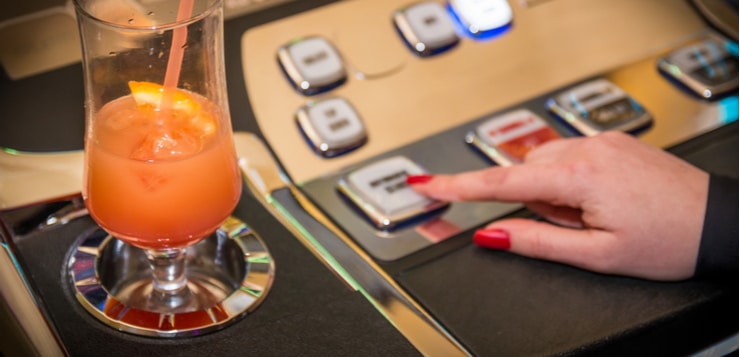The Wolf administration eased some of its COVID-related restrictions in Pennsylvania last week, but not one in particular that casino operators are anxious to see lifted relating to alcohol sales.
Since their reopening in mid-2020 after a three-month shutdown, the casinos have been unable to serve beer, wine, or other liquor to patrons gambling on the casino floor. They also cannot serve drinks at bars.
Like taverns and restaurants across the state, the 14 casinos may only serve alcohol to patrons who are sitting down for meals. At a recent House Gaming Oversight Committee public hearing on how the casinos have fared during the pandemic, multiple operators cited how the normal connection between the ability to drink and gamble is a missing element that is costing them.
“It’s an experience many of our patrons enjoy,” Harrah’s Philadelphia General Manager Chris Albrecht told lawmakers. Dropping alcohol restrictions “would be a value to our industry and help restore some of our revenue losses.”
Casino executives noted that among their thousands of employees furloughed across Pennsylvania due to the pandemic are the bartenders and cocktail waitresses who would normally be supplying drinks to customers. There are still some waitresses working the floor, but only for patrons wanting soft drinks, water, coffee, and tea.
The ability to serve some kinds of drinks but not others “makes it even a little crazier,” said Kathy McCracken, executive vice president of Wind Creek Bethlehem.
Recent change gave thumbs-up to sports fans, not drinking
Among changes announced by Gov. Tom Wolf last week were easing of capacity restrictions at indoor and outdoor events, with permission given to professional sports franchises to allow a limited number of fans at events.
He said the reduced COVID case counts and steady rise in vaccinations of Pennsylvanians have made some changes possible, but there was no mention of any pending adjustment to alcohol restrictions. Part of the thinking behind the limits when imposed is that alcohol consumption can impair judgment, making risk of conronavirus spread more likely.
The Pennsylvania Department of Health, in an email to Penn Bets, said of the possibility of such changes: “The Administration is continuously looking at data, the effectiveness of current mitigation efforts on spread, spread rates, and working towards vaccinations and ensuring that any reopening strategy is done with the public health and safety as the top priority.”
In addition to curbs on alcohol sales, casinos continue operating under a 50% capacity restriction with masking requirements for all employees and guests. Whether from those kinds of changes or the public’s own health concerns about venturing into large gathering spaces, gambling revenue inside the state’s casinos has been running about 25-30% behind figures from a year ago.
It’s hard to separate out just how much of that is due to alcohol limits, but as McCracken told Penn Bets last summer, “When you come to a casino, you’re kind of going for an escape,” which is much harder to achieve now.
Smoking ban is another restriction that continues
One other casino restriction brought up at the legislative hearing was the ban on indoor smoking that has also been in place since July. The Pennsylvania Gaming Control Board imposed that order, noting that it’s hard to enforce mask requirements with smokers, and so the casinos have generally created outdoor patios or similar designated areas for smokers.
“Obviously it’s affected revenue, but it’s very hard to quantify for us,” Parx Casino CEO Eric Hausler told the House committee in response to a legislator’s question.
Some states don’t allow indoor casino smoking anyway, or some operators voluntarily set such restrictions elsewhere. In Pennsylvania, however, casinos have always been able to allow smoking on up to 50% of their floors, with the presumption that it boosts revenue considering the number of gamblers who enjoy lighting up.
At the same time, it can be a turn-off for non-smokers, and when Hausler was asked about whether the new restrictions have been more popular or unpopular, he was non-committal.
“It would say it’s a mix,” he said. “Smokers would prefer to smoke at games like they used to, and non-smokers are delighted.”
New Jersey and other states where smoking has traditionally been a casino option have also imposed COVID-related prohibitions, which a federal official from the Centers for Disease Control and Prevention referred to in a recent conference call as “certainly a silver lining in the context of the pandemic.”
“If all these casinos remain smoke-free even post-COVID-19, this could have an immeasurable impact in terms of not only protecting the public who attend these venues, but also workers who are working eight hours or more per day in these environments,” said Brian King of the CDC’s Office on Smoking and Health.
While the state gaming board was able to impose its smoking ban as an emergency order, it would likely require a change in Pennsylvania’s smoking law to make it permanent. Such proposals have failed to gain traction in past legislative sessions.






